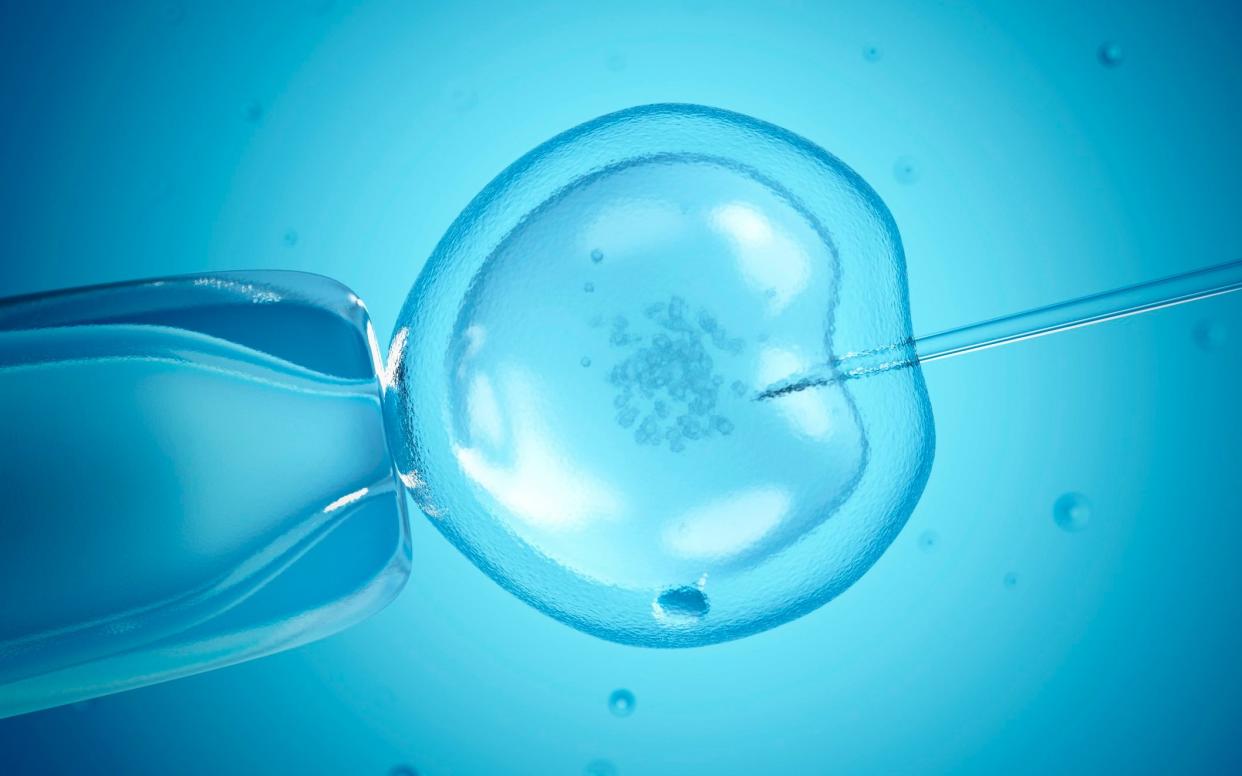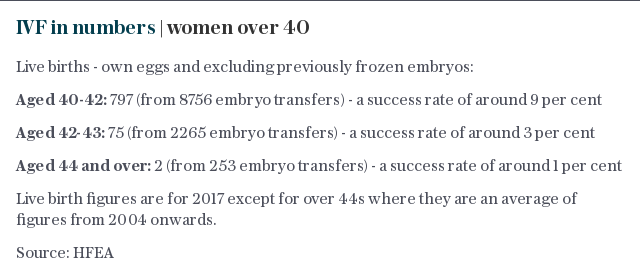Couples being denied IVF treatment if one of them has a child from a previous relationship

Couples in two thirds of NHS regions are being denied IVF treatment if one of them has a child from a previous relationship, according to a new report.
Analysis of the policies of England's 135 clinical commissioning groups (CCGs) reveals that 88 (65 per cent) deem a couple as ineligible for IVF if one person already has a child.
The policy, discovered through freedom of information requests by the British Pregnancy Advisory Service (Bpas), is in contrast to National Institute of Health and Care Excellence (Nice) guidelines.
Nice’s guidance on fertility care for women aged 40 to 42, states: “The existence of living children should not be a factor that precludes the provision of fertility treatment.”
Marta Jansa Perez, director of embryology at Bpas, said it was an “arbitrary rule that is being used by CCGs to ration services”.
“The consequence is that people desperate to become parents will be denied that opportunity because their partner already has a child, and one can only imagine the huge strain it could place on a relationship,” said Ms Jansa Perez.
“No other medical treatment would be withheld on the basis of non-clinical factors in this way.”
Della Waterfield was denied IVF because her partner, Dean Parker, had a daughter from a previous relationship.
“This absolutely broke my heart. I already felt inadequate as a woman not being able to get pregnant and to have this thrown at us turned our world upside down,” she said.
“We were already aware of the postcode lottery surrounding IVF treatment down to the number of cycles offered in different areas, but we never once thought that Dean having a child would affect us getting at least one funded round.”
Ms Waterfield has a condition known as PCOS (polycystic ovarian syndrome) which can impact a woman’s chances of conceiving.
After being turned down for funded treatment, and unable to finance a private round of IVF, the couple were forced to start a fundraising page to pay for private care.
“It has put a lot of added pressure on us as a couple, as it’s hard enough without being discriminated against for something completely out of our control,” she said.
Bpas’s investigation into the “IVF postcode lottery” also revealed that women living in 24 CCGs are required to prove they are in a “stable relationship” to be given IVF funding.
In most cases this had to be proved by the length of the relationship, with CCGs specifying couples should be together at least two years, Bpas said.

Older women are also being excluded from treatment, which is also contrary to clinical guidelines.
One in seven (14 CCGs) do not offer fertility services to women aged over 35, and a further six have age cutoff points between 37 and 39, the report found.
However, Nice guidelines recommend women under 40 should be offered three full cycles of IVF. “Access to any form of healthcare should be rooted in clinical evidence,” said Ms Jansa Perez.
“Sadly, this report demonstrates that for most patients in need of fertility treatment, this is simply not the case.”


